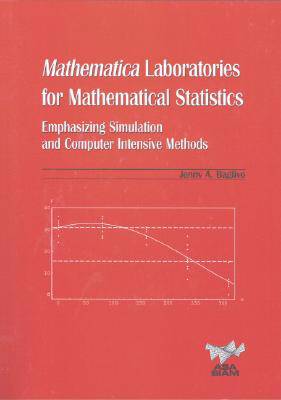
Bedankt voor het vertrouwen het afgelopen jaar! Om jou te bedanken bieden we GRATIS verzending (in België) aan op alles gedurende de hele maand januari.
- Afhalen na 1 uur in een winkel met voorraad
- In januari gratis thuislevering in België
- Ruim aanbod met 7 miljoen producten
Bedankt voor het vertrouwen het afgelopen jaar! Om jou te bedanken bieden we GRATIS verzending (in België) aan op alles gedurende de hele maand januari.
- Afhalen na 1 uur in een winkel met voorraad
- In januari gratis thuislevering in België
- Ruim aanbod met 7 miljoen producten
Zoeken
Mathematica Laboratories for Mathematical Statistics with CD-ROM
Emphasizing Simulation and Computer Intensive Methods
Jenny A. Baglivo
€ 139,95
+ 279 punten
Omschrijving
Presents a concise introduction to the concepts of probability theory and mathematical statistics. The accompanying in-class and take-home computer laboratory activities reinforce the techniques introduced in the text and are accessible to students with little or no experience with Mathematica.
Specificaties
Betrokkenen
- Auteur(s):
- Uitgeverij:
Inhoud
- Aantal bladzijden:
- 280
- Reeks:
Eigenschappen
- Productcode (EAN):
- 9780898715668
- Verschijningsdatum:
- 1/11/2004
- Uitvoering:
- Paperback
- Afmetingen:
- 256 mm x 177 mm
- Gewicht:
- 522 g

Alleen bij Standaard Boekhandel
+ 279 punten op je klantenkaart van Standaard Boekhandel
Beoordelingen
We publiceren alleen reviews die voldoen aan de voorwaarden voor reviews. Bekijk onze voorwaarden voor reviews.









